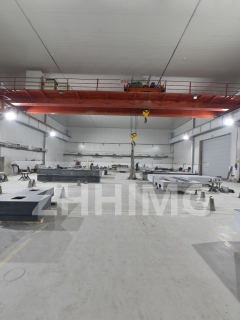Precision Ceramics vs. Granite: Which Material Is Better?
When it comes to choosing materials for various applications, particularly in construction and design, the debate between precision ceramics and granite is a common one. Both materials have their unique properties, advantages, and disadvantages, making the decision largely dependent on the specific needs of a project.
Precision ceramics are known for their exceptional durability and resistance to wear and tear. They are engineered to withstand high temperatures and harsh environments, making them ideal for applications in industries such as aerospace, electronics, and medical devices. Their non-porous nature means they are resistant to staining and easy to clean, which is a significant advantage in settings that require high hygiene standards. Additionally, precision ceramics can be manufactured in a variety of shapes and sizes, allowing for greater design flexibility.
On the other hand, granite is a natural stone that has been a popular choice for countertops, flooring, and other architectural elements for centuries. Its aesthetic appeal is undeniable, with unique patterns and colors that can enhance the beauty of any space. Granite is also incredibly strong and can withstand heavy loads, making it suitable for both residential and commercial applications. However, it is porous, which means it can absorb liquids and stains if not properly sealed, requiring regular maintenance to keep it looking its best.
In conclusion, the choice between precision ceramics and granite ultimately depends on the specific requirements of your project. If you prioritize durability, resistance to extreme conditions, and design versatility, precision ceramics may be the better option. However, if you are looking for a timeless aesthetic and natural beauty, granite could be the ideal choice. Assessing the intended use, maintenance requirements, and desired appearance will help you make an informed decision.
Post time: Oct-30-2024

